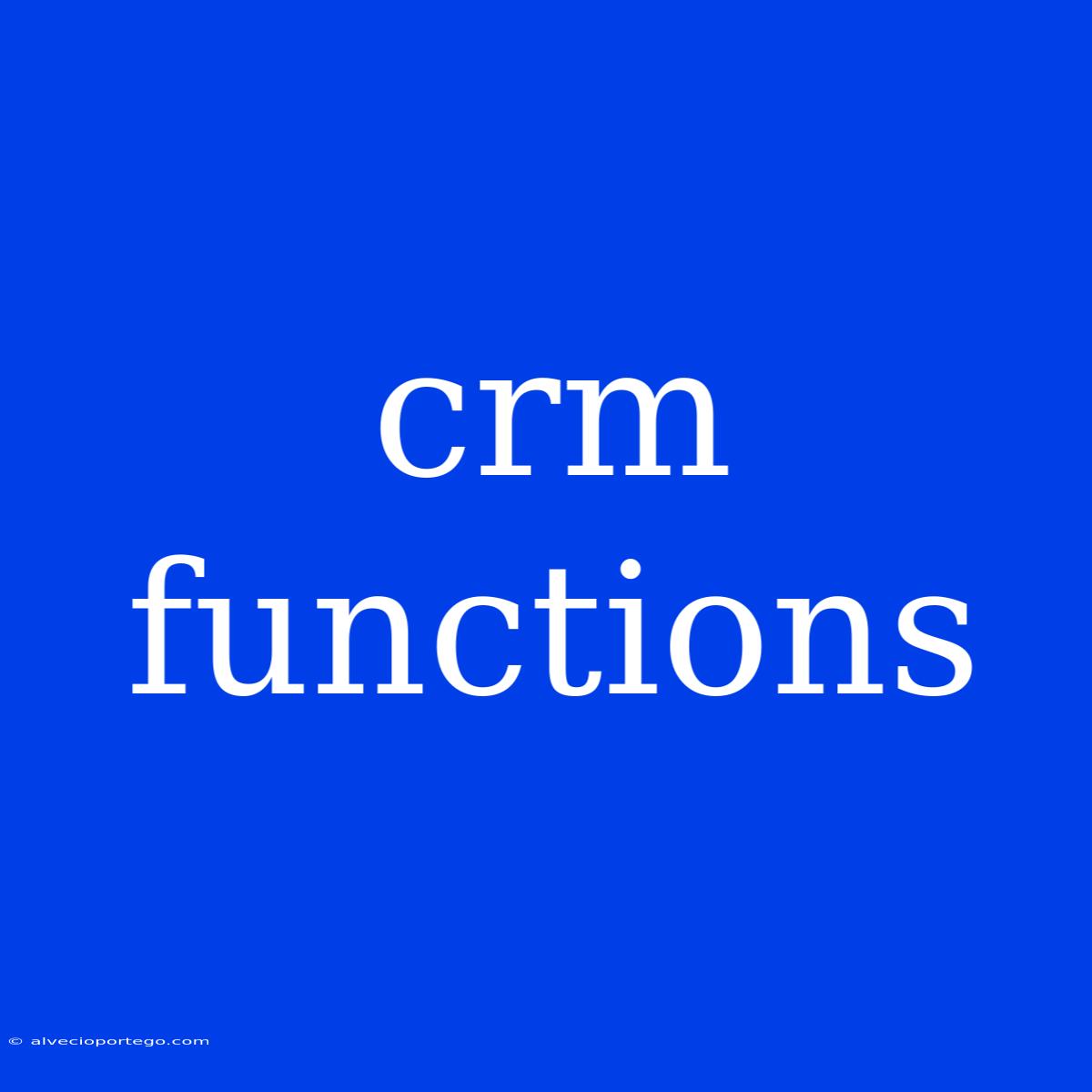The Essential Functions of a CRM System
A Customer Relationship Management (CRM) system is a crucial tool for businesses of all sizes. It helps to manage and improve interactions with customers, ultimately leading to increased sales, improved customer satisfaction, and stronger brand loyalty.
Here's a breakdown of the key functions of a CRM system:
1. Contact Management:
- Centralized Database: A CRM stores all customer information in one place, including contact details, purchase history, communication preferences, and more.
- Organization & Segmentation: Allows you to organize contacts into different groups or segments based on demographics, purchase behavior, or other criteria.
- Automated Tasks: Tasks such as scheduling follow-ups, sending birthday greetings, or triggering automated emails can be easily set up.
2. Sales Management:
- Pipeline Tracking: Visualize your sales funnel, track leads, opportunities, and deals from initial contact to close.
- Opportunity Management: Analyze individual customer interactions and identify potential sales opportunities.
- Sales Forecasting & Reporting: Use data insights to predict future sales, track performance, and make informed decisions.
3. Marketing Automation:
- Targeted Campaigns: Develop and deliver personalized marketing campaigns based on customer behavior and preferences.
- Email Marketing: Manage email lists, send newsletters, track open rates, and analyze campaign effectiveness.
- Social Media Integration: Use social media data to create targeted campaigns and manage interactions with customers.
4. Customer Service & Support:
- Ticket Management: Create and manage customer support tickets, track resolution times, and ensure prompt responses.
- Live Chat & Chatbots: Provide instant support and answer customer questions in real-time.
- Knowledge Base: Create and manage a library of frequently asked questions (FAQs) and self-service resources.
5. Reporting & Analytics:
- Data-Driven Insights: Gain valuable insights into customer behavior, campaign performance, and overall business health.
- Customizable Dashboards: Create personalized dashboards to track key metrics and visualize data.
- Performance Tracking: Monitor sales, marketing, and customer service performance over time.
Benefits of Using a CRM:
- Improved Customer Satisfaction: Personalized experiences and efficient support foster stronger customer relationships.
- Increased Sales & Revenue: Targeted marketing and sales efforts lead to higher conversion rates.
- Enhanced Productivity & Efficiency: Streamlined processes and automated tasks free up time for your team to focus on strategic initiatives.
- Better Decision Making: Data-driven insights provide a clearer understanding of your customers and business performance.
By leveraging the powerful functions of a CRM system, businesses can significantly enhance their customer interactions, improve efficiency, and drive growth.

